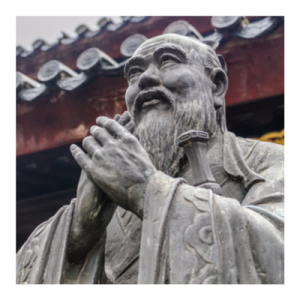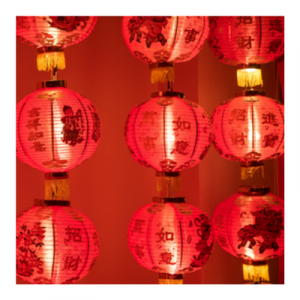Sunday, January 22, 2023, was the official start of the Chinese New Year, and it marks the beginning of the year of the rabbit. This is one of the most important holidays and celebrations in Chinese culture due to its traditions and historical significance. The holiday symbolizes bringing the past year to a close and welcoming a fresh start in the coming year with hopes of health and prosperity. Chinese New Year is celebrated all around the globe, often including fireworks, red clothes and decorations, and visits with family and friends.
To help honor and celebrate the Chinese New Year, one of our ALVS Mandarin Chinese instructors, Shanhui Chen, shares some fun facts, history, and culture of China.
Some Fun Facts About the History of Modern China
The History and Ancient Civilizations
- The Chinese civilization dates to before 7000 BCE. The Shang dynasty ruled from about 1600 to 1046 BCE during the Bronze Age of China. People of the Shang dynasty used calendars and had advanced knowledge of astronomy and math.
- China’s Golden Age was an era of prosperity, peace, and development between the Song and Tang dynasties (618 CE to 907 CE). China underwent vast growth in terms of music, literature, and engineering during this period.
- The Zhou dynasty was the longest-ruling Chinese dynasty when Confucius lived. It lasted from 1122 BCE to 255 BCE. Puyi, the last emperor of China, was named Emperor of China in 1908, at the age of just 2 years and 10 months.
- The four great Ancient Chinese inventions are paper, printing, gunpowder, and the compass.
- The first known banknote (paper money) was developed in China during the Tang and Song dynasties.
Modern China and Its Culture

- China’s high-speed rails span nearly 40,000 km (nearly 25,000 miles), and the country now has the world’s largest bullet trains that can travel up to 350 km/h (220 mph). The plan is to extend these 70,000 km (124,274 miles) by 2035.
- The one-child-policy started in 1980 and ended in 2015. As sons were generally preferred over daughters by the parents, the overall sex ratio in China became skewed toward males. By 2016, there were 59 million more young males than females with the ratio being 104.98 males to 100 females.
- China has contributed close to three-quarters of the global reduction in the number of people living in poverty. At China’s current national poverty line, the number of poor fell by 770 million over the last 40 years.
- The construction of the Chinese space station Tiangong (天宫) officially began in April 2021, and it opened for business in an increasingly competitive era of space activity in November 2022. The main function of the Tiangong station is to perform research on life in space. There is a particular focus on learning about the growth and development of different types of plants, animals, and microorganisms, and there are more than 1,000 experiments planned for the next 10 years

- The tradition “回家过年 go home for the new year” creates one of the planet's great migrations on Chinese Lunar New Year, resulting in the largest human event on earth. In 2018, 385 million Chinese people left the cities to visit their families in rural areas at the same time.
- Chinese New Year celebration lasts for 15 days. Each day has a different ritual. The 15th day, is also called the Lantern Day.
- Chinese parents expect their adult children to get married and have children at their 20s. It’s popular that some young men hire a girlfriend to visit their parents on Chinese New Year to make their parents happy.
Study-Abroad Language Program and Scholarship
The best way to know about China is to visit China. The U.S. Department of State–sponsored program, NSLI-Y (National Security Language Initiative for Youth) includes a scholarship that covers the costs. I taught three students in face-to-face classes who applied and were accepted. They had wonderful experiences. To learn more about it, visit: https://www.nsliforyouth.org/languages-and-program-experience/chinese-mandarin/
Ready To Learn Mandarin Chinese? Learn More About Our World Language Courses
If you are interested in learning more about Chinese culture but are not able to travel, ALVS offers online World Language courses. Students will learn how to listen, speak, read, and write Mandarin Chinese and will engage in interactive activities on the culture and history of China.
(space)

By Shanhui Chen
Ms. Chen taught high school ESL in China for years before moving to the US to pursue her master’s degree. Since then, she has taught 6-12 grade Mandarin for both online and the face-to-face classes. She has been working with Apex for almost 9 years. In her spare time, Ms. Chen is also an eLearning designer who sometimes helps schools and companies design interactive courses and training programs. Her hobbies include cooking, traveling and photography.





